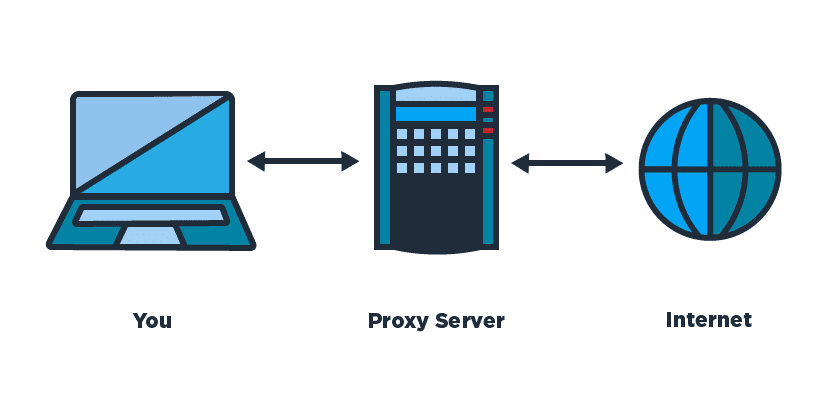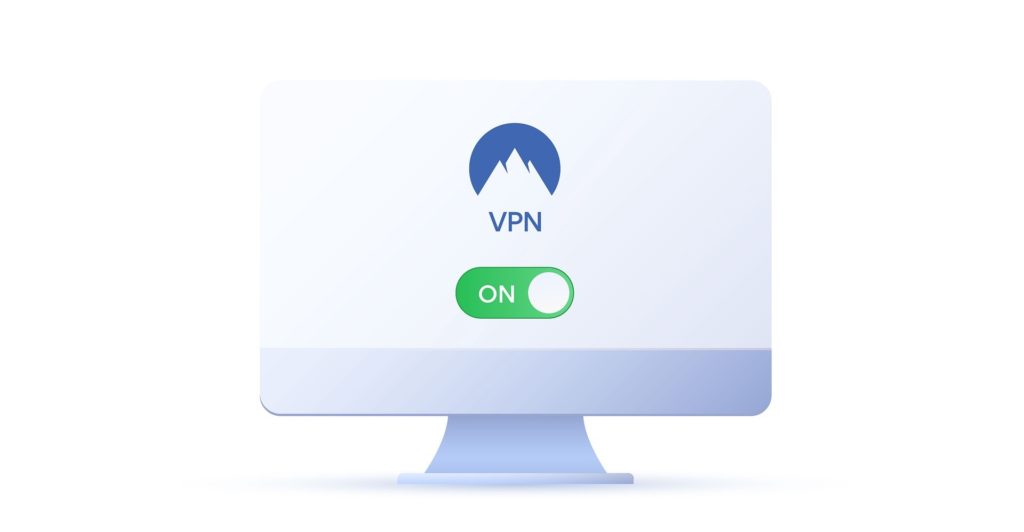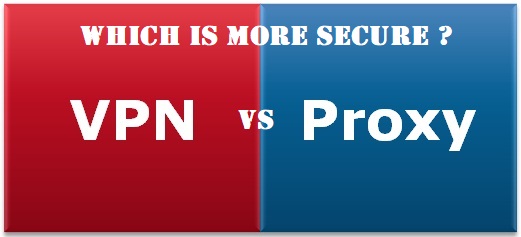The Internet can be a nasty place; there are thousands of intruders waiting for every second to breach your computers, be it your work or personal. That means there is a constant threat to your personal and confidential data, you surely don’t want that, do you? So if you are security conscious, even if you are not, this is high time you start thinking about using Proxy or VPN.
Wondering what these two terms are? Well, you might have heard about these unless you are a hibernating bear, fresh out of the cave. Proxy servers and VPNs are both used to protect the identities, more specifically, the IP addresses. That means they both can also be used to gain access to geo-restricted websites too.
People often consider Proxy servers and VPNs the same because they both get their job done. However, they work in a slightly different manner. One protects your privacy while the other doesn’t. To know more about the differences between them and which one should you use for online privacy protection, keep reading.
Let’s start our discussion from understanding deeply about each individually.
Proxy Servers
Proxy is a gateway or intermediary between your device and the website you are trying to access. What happens is, when you access a website, the proxy server hides your original IP address and shows the IP address of Proxy Server on website. As it is clear, Proxies only work at the application level, that means that they are only responsible for rerouting the traffic of the single app that you first set up initially. Furthermore, they also don’t encrypt your data.

There are three types of Proxy Servers:
- Public Proxy: These proxies are free to use and easily available, hence making them the first choice of people. As it is not easy to uncover who is running the server, it can be quite troublesome. Therefore, public proxies should only be used when accessing blocked websites.
- Web Proxy: It is a free proxy server within your web browser. They don’t require any installation or downloading. As it is clear that Web Proxy is easy to use when you are in a rush. However, they are not good enough when accessing websites with Java, Javascript, or Flash.
- SOCKS Proxy: If you are into torrenting, the SOCKS Proxy is the one for you. They are capable of handling diverse traffic. Hence it is more versatile than the rest proxies (web and public).
Pros of Proxy Servers:
- Free to use (only public proxies)
- Makes geo-restricted websites accessible
- Sufficient for daily browsing as it provides little privacy
Cons of Proxy Servers:
- Proxy servers can have access to your personal information as well as your original IP address
- Unstable connection (not enough for streaming)
- No encryption of data
- The proxy server you are using might be being used for some criminal activity by someone else at the same time
Virtual Private Network (VPN)
VPNs are the same in working as Proxy servers as they also reroute the traffic while hiding your personal IP address. However, VPNs are applicable at Operating System level. That means, unlike proxies, they redirect data all the data, whether it is from your browser or any application at the background.

In addition to that, if you want to encrypt your data, VPNs do that as well. When you are connected to a VPN server, Internet Service Provider (ISP) who monitors your activity online is unable to know what you are doing. VPN is an ultimate privacy and security hub as it keeps you protected from government surveillance, hackers, or tracking.
Pros of VPN
- High level of encryption
- Safe and secure throughout your connection
- Additional features can be added into your packages such as DNS and NAT firewalls
Cons of VPN
- A little expensive if you want quality
- Might result in slower network connection after setting up VPN
- Might utilize your system’s power and memory usage
The Knockout Round – Proxy vs. VPN, Which one is the best for you?
From the facts above, it should be straight enough to know who is the clear winner here, VPNs. 99.9% of times you might want to use VPNs for some extra level of security.
Even though we have concluded who wins here, however, there are still some scenarios where you might want to get your job done with proxies as well. However, one thing I’d like to discuss before we move on is the usage of free VPN or free proxy servers.
As much as you’d feel like the opportunity is in your playground, well, it isn’t. Free VPNs use their servers to route your connections and can sell your data to advertisers openly. This generates their only revenue since you’re not actually paying them to secure your connection. The same can be said for unsafe proxy servers. So, unless you’re a-okay with your data being sold off, you should prefer better options from both categories.
Where should you use Proxy Server?
When your simple purpose is to access a website that is blocked in your region, and you clearly don’t have any motive of hiding your data, using a proxy over VPN might be your best bet. They are good if you don’t need online privacy over a long time and it is just one time task. However, do make sure whenever you use proxy server don’t send any personal data.
Where should you use VPN?
VPN has to offer the same perk as Proxy Servers with a tad bit of anonymity, security, and protection. They are the best when you want to be safe for a longer period of time while keeping your data confidential.
With all these benefits, there comes a price. The high-quality features of VPNs don’t come for free, and they are pretty expensive as well. But, it is a worthy investment!
Final Thoughts
So, this concludes our discussion about the infamous battle between proxy and VPN servers. Hopefully, our information was enough to help you make the right decision. Both options are excellent at protecting your data, anonymizing your identity, and securing your networks!








3 Comments